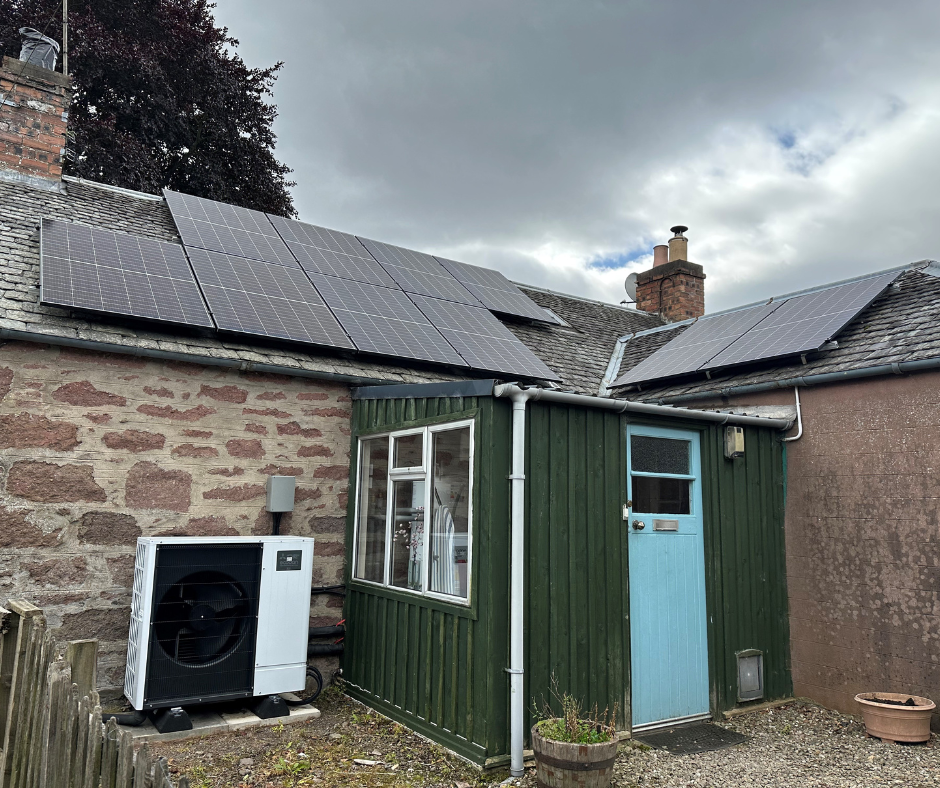Their 1800s semi-detached cottage lacked mains gas and relied on pricey electric storage heaters, an open fire, and an inefficient immersion water heater. This led to high annual energy costs of approximately
£2,600 and generated an estimated 7.8 tonnes of carbon emissions.
Worried about their high bills and the property’s inefficiency, Mr Tait contacted a contractor, who referred him to the Energy Company Obligation (ECO) 4 Flex programme. There are two steps to determining eligibility for the programme, the first being financial and the second is dependent on how much the changes improve the property’s energy efficiency. So, once it was clear the Taits met the financial criteria of the scheme, a survey of the property was done by a contractor to determine what changes would be possible to increase the energy efficiency of the property. For the Taits, the survey confirmed the property would be sufficiently improved, making them eligible for funding.
The survey revealed the property would benefit from wall insulation, an air source heat pump, supplemented with new radiators, and the installation of solar panels. To preserve the traditional external stone walls, it was decided that internal wall insulation would be the most appropriate measure to increase the energy efficiency of the property.
The cost of the energy efficiency improvements was around £21,000 and was fully funded by the Energy Company Obligation programme, requiring no contribution from the Taits. The installation was completed in May 2023 and significantly improved the property’s energy efficiency, moving from EPC band F to A. It is expected that energy bills will be reduced by up to 80 percent –
translating to expected yearly savings of £2000 and a significant drop in carbon emissions. Following the installation, a member of Scarf’s home energy advice team visited to provide further guidance on optimizing energy use in their home. The Scarf advisor who conducted the Tait’s home visit, said:
‘It’s great to see the transformation that ECO Flex can bring to elderly householders on fixed limited incomes with very inefficient properties. The measures installed will very significantly reduce the couple’s energy bills allowing for future financial security as well as enjoying a warm and comfortable home’’.











